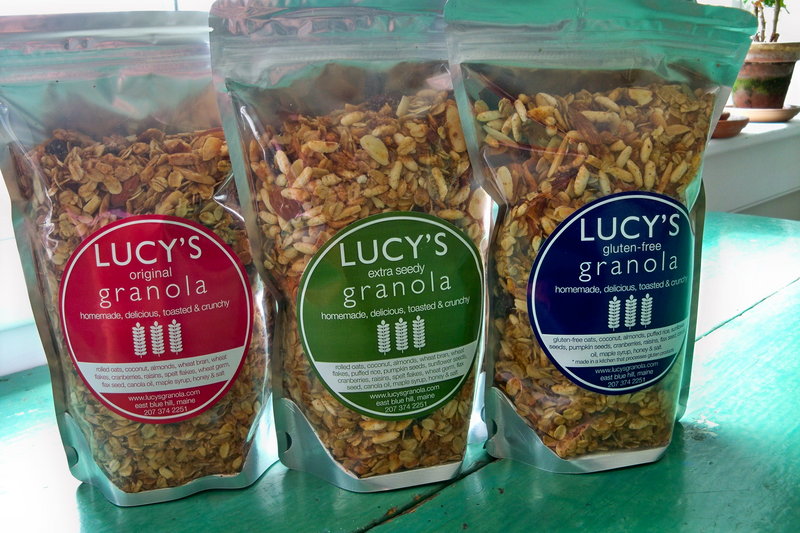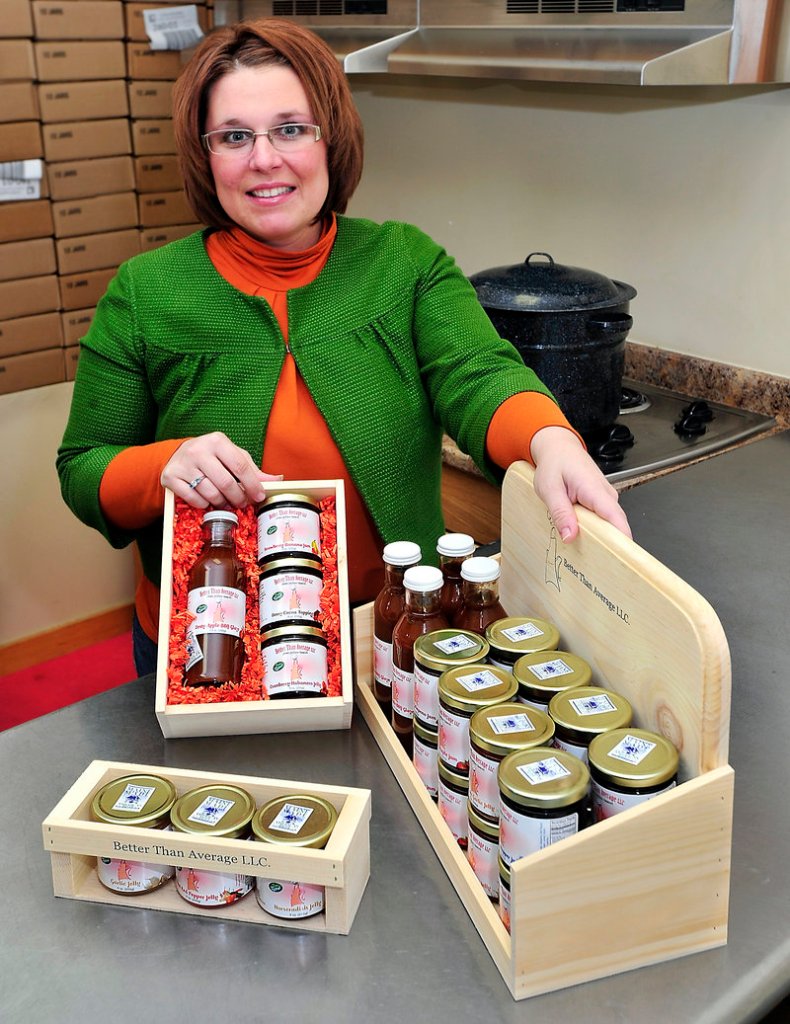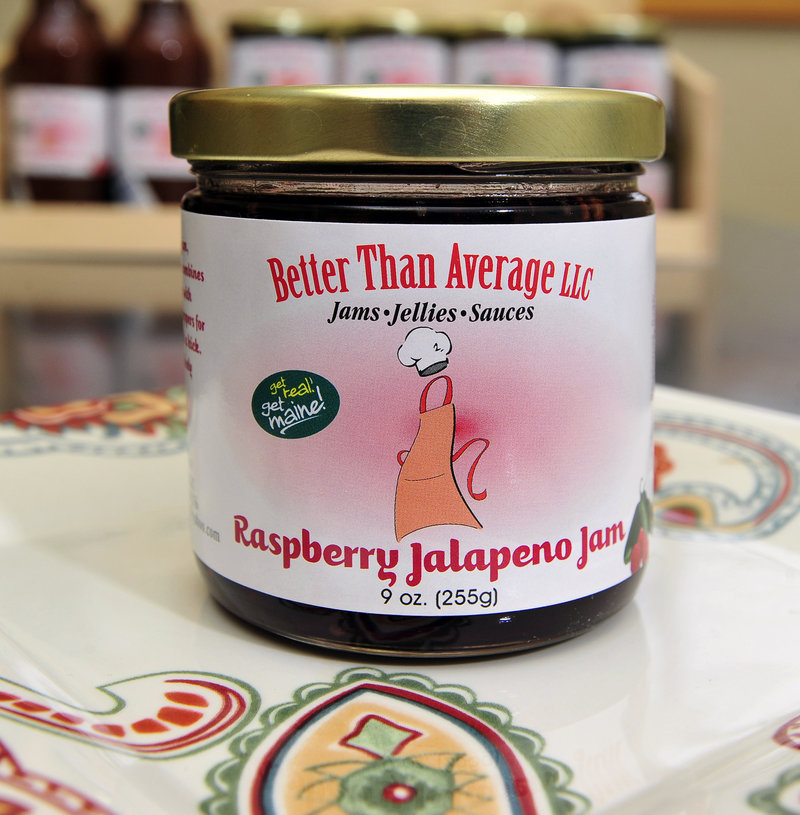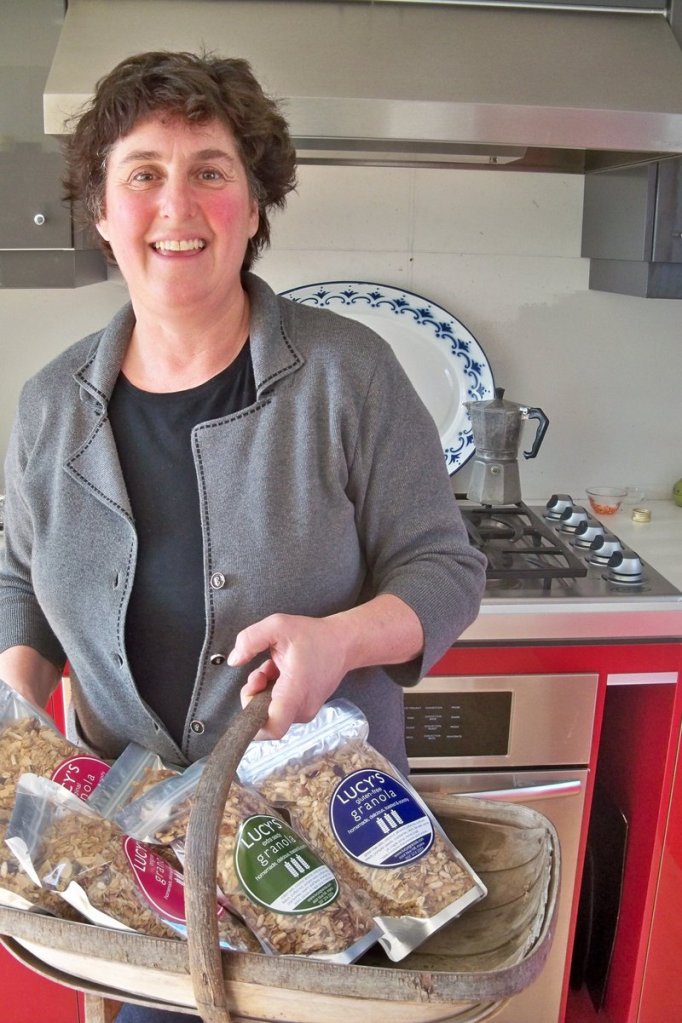Shannon Bissonnette is living out a food fantasy that a lot of Mainers secretly harbor.
Bissonnette was working in the corporate world when she started making jams and jellies at home, using raspberries, apples and blueberries left over from pick-your-own expeditions with her children. She gave her creations away to teachers, family members and friends, who soon begged for more.
“I had businesses come up to me and tell me they wanted more, and farms in the area saying ‘Can we please sell your product?’ ” Bissonnette recalled. “And that’s how it really took off.”
Four years ago, Better Than Average Jams, Jellies & Sauces was born. The company specializes in making jalapeno and habanero jams and jellies that can be used as marinades and glazes.
About a year and a half ago, Better Than Average moved from Bissonnette’s to a commercial kitchen in downtown Mechanic Falls. Now Bissonnette’s homemade products – she still makes everything herself, at least for now – are being sold in 80 stores all over the country. Sometime this year, they are expected to go into Whole Foods’ Portland store, a couple of Maine Hannaford stores, and 169 Shaw’s stores, potentially quadrupling production.
Bissonnette did not do all of this alone. She had the help of the Maine Food Producers Alliance, a three-year-old group of Maine food and beverage businesses that mentors budding food entrepreneurs and helps connect them with manufacturers and the marketplace.
The alliance holds workshops that teach up-and-coming stovetop businesses all the practical things they need to know, from picking out the best packaging to the do’s and don’ts of approaching major retailers. The group includes businesses of all sizes, from Stonewall Kitchen – whose owners started out selling their products at local farmers markets – to smaller ventures such as the Perfect Peanut Brittle Co. in Saco.
“There are a lot of people who have got great ideas, who have obviously been encouraged by their neighbors and friends to produce products that they believe should have an opportunity to be marketed throughout the country,” said Mike Cote, president of Look’s Gourmet Food Co. in Whiting and chairman of the Maine Food Producers Alliance board of directors. “But they don’t really have the wherewithal and the know-how in order to connect the dots, so to speak, on how to do all of that.”
The organization tries to keep its members a step ahead on trends, and hopes that by getting food and beverage businesses to band together, they will make the Maine food industry more visible.
There is also, among some of the group’s more established members, a sense of social responsibility to help others succeed.
“We think that’s a really good thing for the entire food industry in the state of Maine,” Cote said.
Waite Maclin, founder of Pastor Chuck Orchards and a member of the alliance’s board, now offers the kind of advice he wishes he’d gotten when he started his apple products company.
“When I started getting into this stuff, I just kind of had to feel my way,” Maclin said. “And now we’ve got all of these people within the alliance who have this experience, and we have connections now with large supermarkets, with the Maine Grocers Association, so we can put people in touch. Someone the other day wanted to know about UPC codes, so I was able to put them in touch with the company that I use.”
Maclin has also answered questions about pricing and how to find a good fulfillment warehouse.
The alliance holds regular “Meet & Greet” business development workshops that focus on some of these topics. One recent workshop was held at Volk Packaging in Biddeford.
“Everybody learned a heck of a lot about cardboard – not only how to keep your costs down on your packaging, but what types of substrate are the best to protect your product for shipment and that sort of thing,” Cote said. “That was really a very worthwhile and beneficial tour for our members, because they got to know a lot of things they didn’t know before.”
The alliance also holds an annual “Maine Food Means Business” summit with the Maine Grocers Association that brings food producers together with wholesalers, distributors, manufacturers and other professionals in the food industry.
One of the topics new food businesses learned about was food safety, “which blew a lot of people away,” Maclin said.
“They just didn’t even think about that before, and it’s a huge issue,” he said. “All you need is one E. coli experience and you’re done, particularly if you’re a new vendor.”
The summit also features a speed dating-style forum where new producers can sign up to have retail food executives come by their displays and check out their products.
“And you have speakers from distribution companies,” Bissonnette said, “and you have forums where you get Shaw’s, Hannaford and all these people together, and they talk about their business and what they see coming up for the key markets, such as natural and organic and gluten free, or whatever the next big thing is.
“It’s an amazing group of Maine executives – people you can just email whenever you have a question and say, ‘Can you help me with this?’ “
Lucy Benjamin, founder of Lucy’s Granola in East Blue Hill, called the summit “a great way to have your product come to the attention of some really serious buyers.”
Benjamin fell in love with granola when she tried some made by a baker at a local farmers market. She started making her own, and took some to a bake sale at her local library. “People kept asking me for more and more,” she said, “so I kept making it, and eventually I decided that I couldn’t just give it away anymore.”
Now she’s got a commercial kitchen in her home, and employs people to make the granola 12 hours a day.
Benjamin’s granola contains much less sugar than other brands. Most granola is sold in 12- to 13-ounce bags, but Benjamin sells hers by the pound. She makes three varieties: Original, extra seedy and gluten-free.
“It’s very simple and straightforward, and it’s well toasted,” she said. “It’s handmade in really tiny batches, about 15 pounds at a time at the moment.”
Benjamin started selling her granola at a farmers market, then at the local food co-op. After two years of growing her business on her own, she’s now in 30 to 40 stores in New England; Washington, D.C.; and New York, and at seven farmers markets. She has doubled her business every year, and is hoping to expand once she finds a distributor.
Benjamin said before she started her own food business, she had no idea how much work was involved.
“I’m selling it myself,” she said. “I’m calling all my shops. I’m keeping supplies coming in. I’m doing the invoicing. I have a whole mail-order business that I’m packaging and servicing. You have to keep on top of design, labels, all the supplies from bags to labels to ingredients to packaging material. Everything. It’s endless.”
Benjamin has been a member of the Maine Food Producers Alliance for about a year and a half. At one of the annual summits, she connected with a woman who is now doing the lab work to get nutritional information on Benjamin’s products. She’s also doing some shelf-life testing.
The event, Benjamin said, “was really useful, really encouraging. I really do feel I could call up many of the members and ask for help. I really feel that there is a network there.”
It was at one of the summits that Shannon Bissonnette was able to connect with the retailers who are helping her take her business to the next level.
“It’s exciting,” Bissonnette said. “It’s terrifying. It’s a little bit of everything. But you know, that’s what you want. I’m ready for it. Bring it on.”
Staff Writer Meredith Goad can be contacted at 791-6332 or at: mgoad@pressherald.com
Twitter: MeredithGoad
Copy the Story Link
Send questions/comments to the editors.







Success. Please wait for the page to reload. If the page does not reload within 5 seconds, please refresh the page.
Enter your email and password to access comments.
Hi, to comment on stories you must . This profile is in addition to your subscription and website login.
Already have a commenting profile? .
Invalid username/password.
Please check your email to confirm and complete your registration.
Only subscribers are eligible to post comments. Please subscribe or login first for digital access. Here’s why.
Use the form below to reset your password. When you've submitted your account email, we will send an email with a reset code.